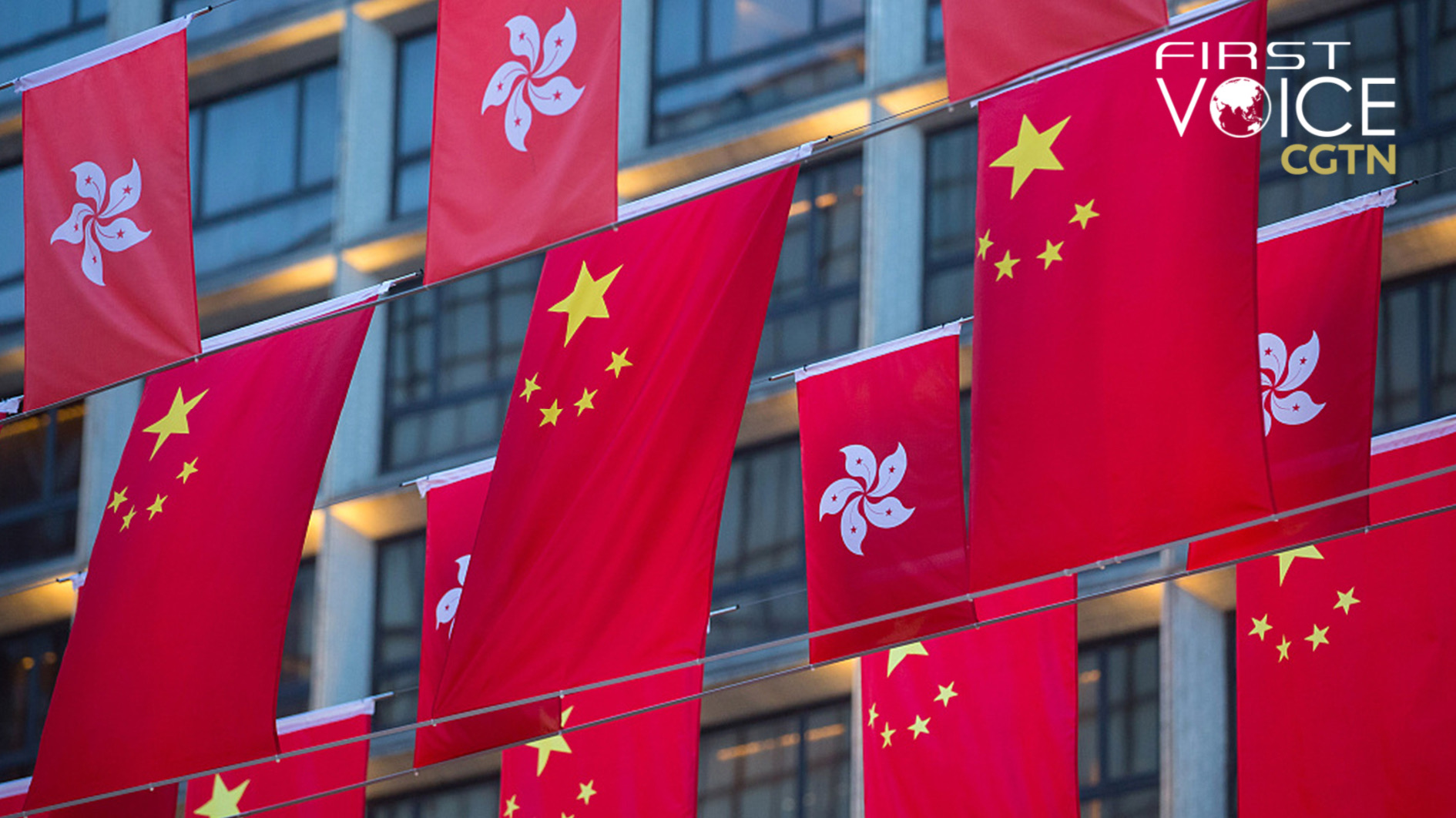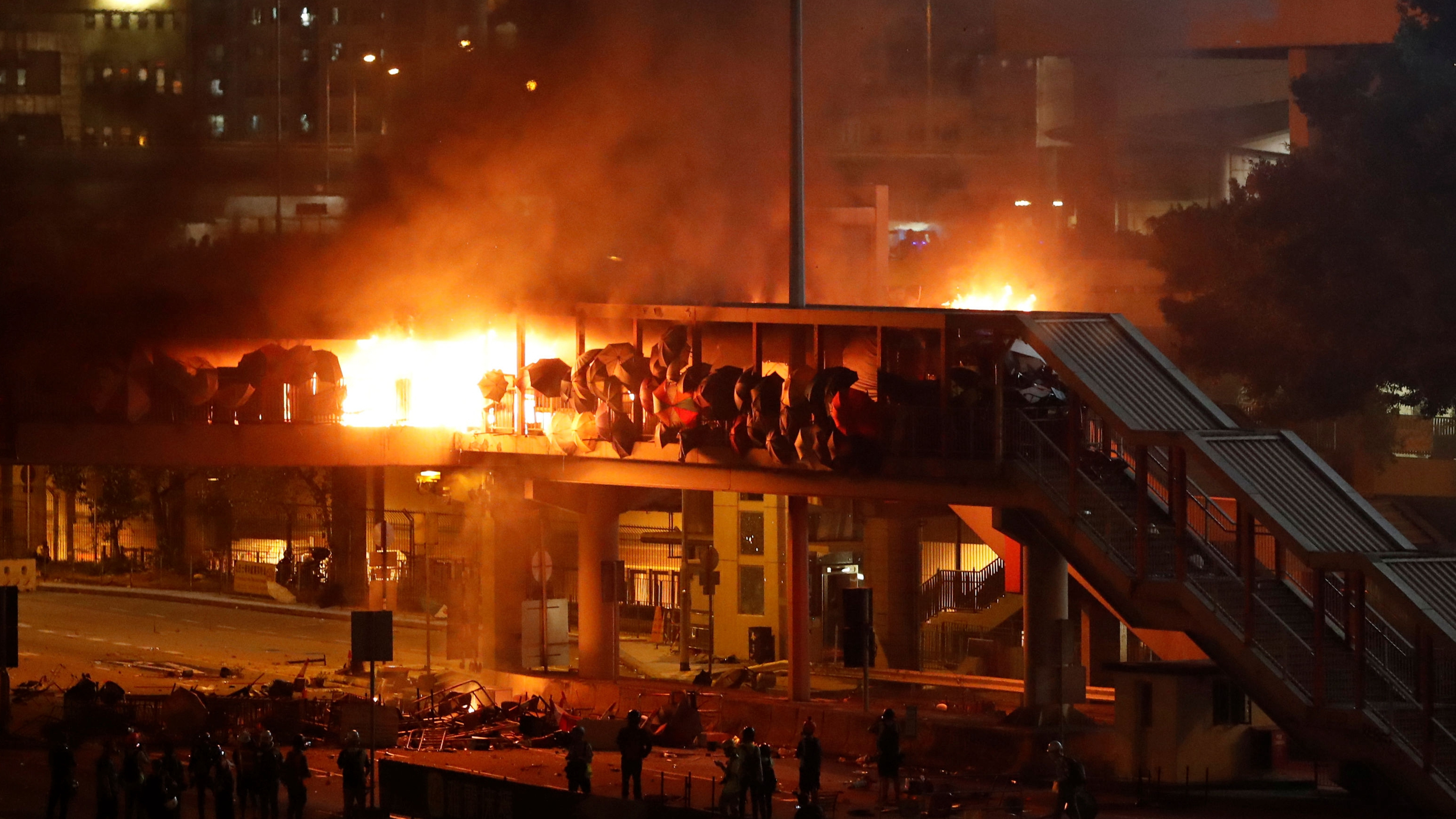
Editor's note: As the deliberation of a draft NPC decision on improving the electoral system of the Hong Kong Administration Region is underway, conflicting views, criticisms, and different characterizations of the issue fill the public discourse. CGTN First Voice presents a three-part series offering Chinese perspectives on the subject. Part one focuses on the legality of the system and the central government's authority on related matters.
On March 4, the preparatory meeting of the fourth session of the 13th National People's Congress adopted the agenda of the session, including the deliberation on the draft NPC decision on improving the electoral system of the Hong Kong Special Administrative Region. In the press conference, NPC Spokesperson said that the electoral law in HKSAR needs to keep pace with the times.
In Hong Kong, the current legislative council election system requires the signing of the nomination form in which the candidate has to declare that he or she will uphold the Basic Law and swear allegiance to the Hong Kong Special Administrative Region.
The question is: Is this enough? No, according to executive council chairman of the Hong Kong Legal Exchange Foundation Lawrence Ma. He said in an interview that "political amateurs, even if they are inherently anti-China, may still get in because they have not explicitly or publicly voice out their anti-Chinese views."
There was no shortage of elected legislators in Hong Kong who turned out to be willing to collude with a foreign government in efforts against their own country. Alvin Yeung and Dennis Kwok, two former legislators, visited Washington D.C. in August 2019 to lobby U.S. politicians to impose sanctions against HKSAR officials. Kenneth Leung even handed over a list of individuals that the legislators believed the U.S. sanctions should be targeted against.
It wasn't until the National People's Congress took action in 2020 that these people were stripped of their power.

An elevated walkway is burning during clashes between rioters and police outside Hong Kong Polytechnic University in Hong Kong, China, November 17, 2019. /Reuters
An elevated walkway is burning during clashes between rioters and police outside Hong Kong Polytechnic University in Hong Kong, China, November 17, 2019. /Reuters
Weren't there any provisions or clauses in place before that would have similar supervision effects? According to Chairman Ma, there were. Article 79(7) of the Basic Law allows a legislative councilor to be censured for misbehavior or breach of oath by a vote of two-thirds of the members of the Legislative Council present. However, these kinds of censures hardly happen. "It was practically unworkable in those days when the pan-democrats occupied near half of all the LegCo seats," he said.
Even the disqualification eventually took place, it was too late. Seeing legislators openly inviting foreign powers to intervene in China's domestic affairs weren't just a disgrace to themselves. These actions disgraced China's image on the world stage and threatened the country's sovereignty. The damage to the city's reputation and China's stability was already done.
The national security law and the legislation changes under consideration now are all part of the central government's efforts to weed out legislators who use their position to push insidious and treasonous agendas against China. Chairman Ma pointed out that, under the Chinese Constitution, The National People's Congress and the Chinese central government have the power to confirm proposed changes to the election method of the Chief Executive and the Legislative Council under Basic Law Article 45(2) and 68(3) respectively.
"This is known as the confirmation power of the eleven heads of power within the comprehensive jurisdiction over HKSAR," Chairman Ma said, "thus, it is constitutionally valid for the NPC or the central government to exercise power to amend, revise, change, or to otherwise modify the election system of the Chief Executive and the LegCo in Hong Kong."
As said in the media conference, it is within NPC's power and responsibility to make decisions on improving HKSAR electoral system. It is consistent with the Constitution.
Defending China's sovereignty and security is of utmost importance. Collusion with foreign powers breaches the sovereignty and harms the security of the country. Steps taken now will put the two-faced politicians and treasonous legislators out of their jobs, ensuring they will never endanger China from within again.
(If you want to contribute and have specific expertise, please contact us at opinions@cgtn.com.)

